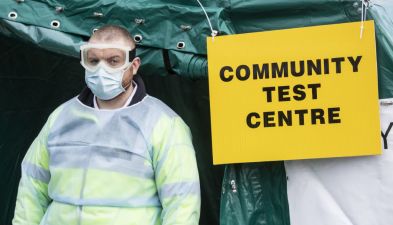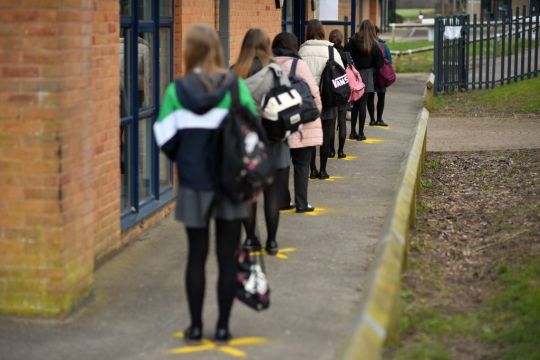As schools across the State are set to open their doors, the Education and Training Board Schools National Parents' Association has called for a staggered reopening amid record-breaking daily Covid cases.
The association, which represents over 47 per cent of post-primary schools, has written to the Minister for Education following Nphet predictions that the Omicron wave is not to peak until mid-January.
"A cautious approach to the reopening of schools is needed to ensure everyone's wellbeing," the association said in a statement.
"Our proposal is for a staggered school reopening, with schools reopening on Monday 10th for just the Leaving Cert and Junior Cert students.
"Then based on the daily number of cases, to slowly open up the other classes over the following two weeks.
"This would allow parents, schools and teachers to deal with the projected wave and level of illness in the community in a more manageable way."
Disruption, not closure
Minister for Education Norma Foley is set to meet with teachers' unions, parents groups and boards of management on Tuesday.
As reported in the Irish Examiner, although there is concern around the high infection rate of the Omicron variant, Government urgency to keep schools closed is not happening as it did this time last year.
“Schools will reopen. I am not aware of any country in Europe planning to keep them closed, and we're all in much the same boat,” said one senior Minister.
“The likely talk is one of disruption, not closure as of now but there is a sense the Government needs to do more to assure parents and teachers that the classrooms are safe,” said one source.
Meanwhile, Taoiseach Micheál Martin, Tánaiste Leo Varadkar and Green Party leader Eamon Ryan will meet after the country witnessed a number of record-high daily case tallies over the last week, driven by the Omicron variant.
Impact on children
The Government Rapporteur on Child Protection Conor O'Mahony, a Professor of Law at University College Cork, said Ireland has had "pretty long" school closures by international standards, with children having missed between 90 and 110 school days due to lockdowns.
"The impact on children is not limited to just missing a few weeks of classes and having to catch up on that later on," Professor O'Mahony said.
"There are multiple impacts on children that we have seen documented in Ireland and internationally from school closures including on their mental health, including on their social skills, their general development, their recreational opportunities.
"And then in some of the more extreme cases we do see significant issues arising around children at risk, who find themselves forced to spend lengthy times in unsafe home environments, exposed to abuse and neglect and domestic violence."
Professor O'Mahoney raised concerns that child protection referrals would dry up as a result of school closures because teachers are a key source of information for social services, leaving the ability of social workers compromised.
We should be ensuring that we have exhausted every other possibility in terms of the various types of safeguards and mitigations that can be put in place in schools before we look at the option of school closures
"The pattern in Ireland very much reflected the pattern seen internationally that when schools were closed you saw a significant drop off in the number of referrals being made," Professor O'Mahony explained.
"Particularly the category of what is known as mandated referrals which would be referrals made by reporters who were legally obliged to refer, which would include teachers".
"We don't want to expose children's health to any dangers if we can avoid it, but the issue here is that school closures should be the very last resort rather than looking at school closures as something we should do before we invest in other mitigation measures in schools," Professor O'Mahony said.

"The other key point that emerges is that all of those negative impacts that I mentioned disproportionately fall on children from disadvantaged and marginalised communities," he added.
"That's a really important point to make.
"While some people may look at the situation and think that the children in their families or their communities will be fine if schools have to close for January, the thing to remember is that isn't the case universally across all children."
-Additional reporting by Vivienne Clarke







